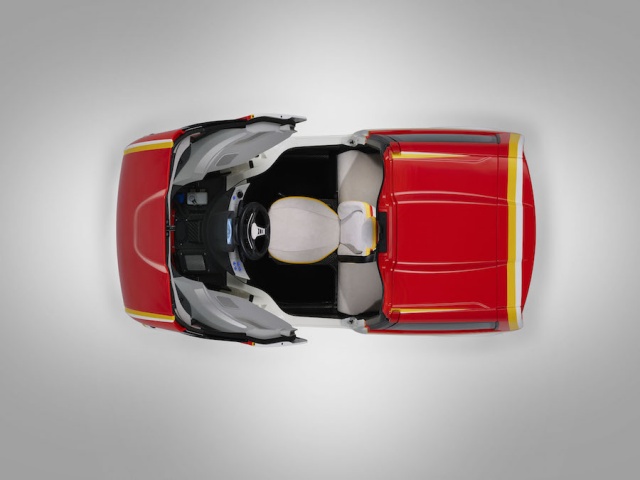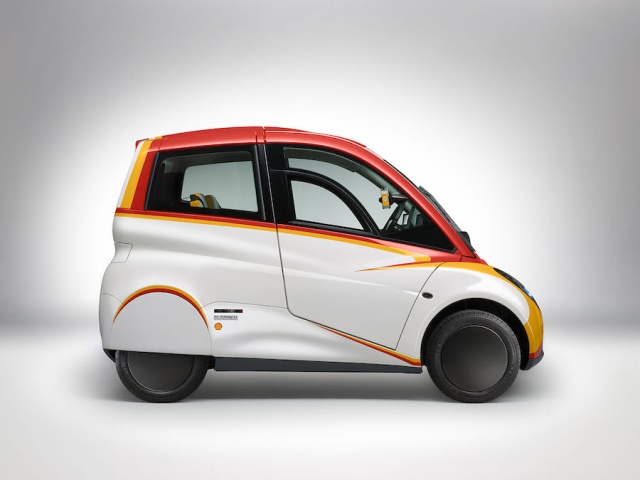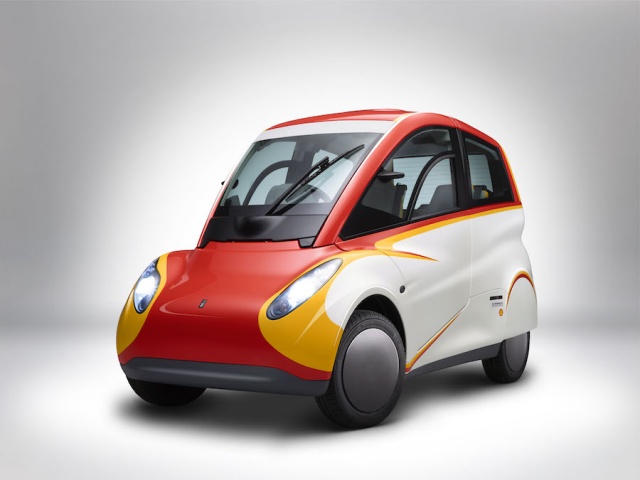What's the news?
Shell has teamed up with legendary, virtually God-like, racing and road car designer Gordon Murray to create a special version of his T25 experimental city car using the latest in lubrication technology.
The T25 was created using both an innovative new factory technique (called i-Stream which uses lower energy inputs and reduced factory sizes) to build a light, efficient three-seat city car (with central seating for the driver, just like Murray's famed McLaren F1 supercar of 1993.
While we wait to see which car maker is going to licence Murray's tech for production (and many are said to be interested) Shell has used the featherweight 550kg T25 as a basis for showing off what a difference using high-tech lubricants can make to your fuel consumption.
According to Shell's figures, the car would use roughly 34 per cent less energy over its lifecycle than a conventional city car. It would also use about half the energy of a family hatchback and 69 per cent less than a mid-size SUV.
The whole idea is to use less energy to make the materials for building it, less energy building it, and make it use less fuel and less energy when running. According to Shell, thanks to using high-tech new oils, the car records average fuel consumption of 107mpg when running at a steady 70km/h, and the new lubricants help it to trim its already low emissions of Co2 by around five per cent on the current NEDC official test. Even more impressively, on the cold-start portion of that test, Shell estimates that the new oil helped to trim Co2 emissions by as much as seven per cent.
Mark Gainsborough, Executive Vice-President of Shell's global lubricants businesses which backed the project said: "This is a significant automobile engineering milestone. I'm very proud of what Shell's scientists and their partners at Geo Technology and Gordon Murray Design have achieved. Insights gained from this project could be transformational in terms of how we address energy use in the road transport sector. Energy use and climate change are major issues for society. This project shows that if we use the best of today's technology, including cutting edge lubricants science, we could potentially have a major impact on energy use and reduce CO2 emissions. The improvement in economy derived from the collaborative design of engine and lubricant is impressive and highlights the enormous benefits achieved from close relationships between design partners. It also shows the powerful role that lubricants can potentially play in helping achieve CO2 reduction targets."
Shell provided all the fluids for the car, specially 'designing' the motor oil to complement and enhance the overall efficiency of the vehicle, principally by minimising friction. Shell's Lubricants technology team created bespoke engine oil, based on its premium product Shell Helix Ultra with PurePlus Technology. In parallel, engine guru Osamu Goto's group at Geo Technology optimised the three-cylinder petrol engine by re-designing and optimising many of the internal engine components associated with friction.
Dr. Andrew Hepher, Vice President, of Shell's lubricant research team said: "Our car may be small, but it's packed with potential. We want to accelerate the conversation about how we make road vehicles more energy efficient and less carbon-intensive. In the coming weeks and months, we look forward to sharing our research insights from this project with engine designers, car manufacturers, academics and other experts across the automotive sector."






